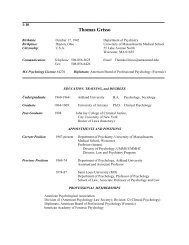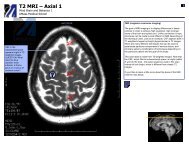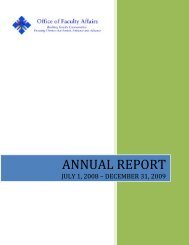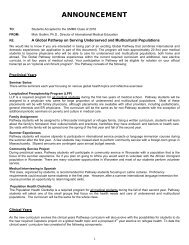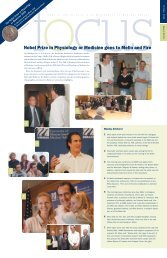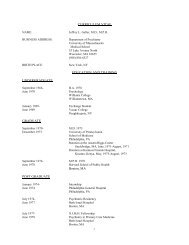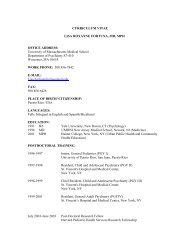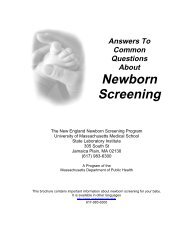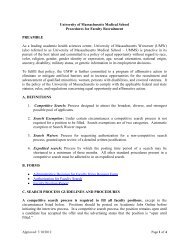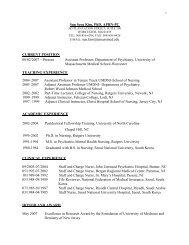Anger Management Manual - the ATTC Network
Anger Management Manual - the ATTC Network
Anger Management Manual - the ATTC Network
You also want an ePaper? Increase the reach of your titles
YUMPU automatically turns print PDFs into web optimized ePapers that Google loves.
Events and Cues<br />
A Conceptual Framework for Understanding <strong>Anger</strong><br />
Session 2<br />
Instructions to Group Leaders<br />
This session teaches group members how to analyze<br />
an anger episode and to identify <strong>the</strong> events<br />
and cues that indicate an escalation of anger.<br />
Begin <strong>the</strong> session with a check in (following up<br />
on <strong>the</strong> homework assignment from <strong>the</strong> last<br />
week, namely, have group members report on<br />
<strong>the</strong> highest level of anger <strong>the</strong>y reached on <strong>the</strong><br />
anger meter during <strong>the</strong> past week) and follow with<br />
Outline of Session 2<br />
• Instructions to Group Leaders<br />
• Suggested Remarks<br />
– Events That Trigger <strong>Anger</strong><br />
– Cues to <strong>Anger</strong><br />
• Explaining <strong>the</strong> Check-In<br />
Procedure<br />
a presentation and discussion of events and cues. A more complete Check-In Procedure will be<br />
used in session 3 after members have been taught to identify specific anger-provoking events<br />
and <strong>the</strong> cues that indicate an escalation of anger.<br />
After <strong>the</strong> Check-In Procedure, ask group members to list specific events that trigger <strong>the</strong>ir anger.<br />
Pay special attention to helping <strong>the</strong>m distinguish between <strong>the</strong> events and <strong>the</strong>ir interpretation of<br />
<strong>the</strong>se events. Events refer to facts. Interpretations refer to opinions, value judgments, or perceptions<br />
of <strong>the</strong> events. For example, a group member might say, “My boss criticized me<br />
because he doesn’t like me.” Point out that <strong>the</strong> specific event was that <strong>the</strong> boss criticized <strong>the</strong><br />
group member and that <strong>the</strong> belief that his boss doesn’t like him is an interpretation that may<br />
or may not be accurate.<br />
Be aware of gender differences. Women participants often identify relationships with <strong>the</strong>ir<br />
boyfriend or partner or parenting concerns as events that trigger <strong>the</strong>ir anger. Men, however,<br />
may rarely identify <strong>the</strong>se issues as triggers.<br />
Finally, present <strong>the</strong> four cues to anger categories. After describing each category, ask group<br />
members to provide examples. It is important to emphasize that cues may be different for each<br />
individual. Members should identify cues that indicate an escalation of <strong>the</strong>ir anger.<br />
15




